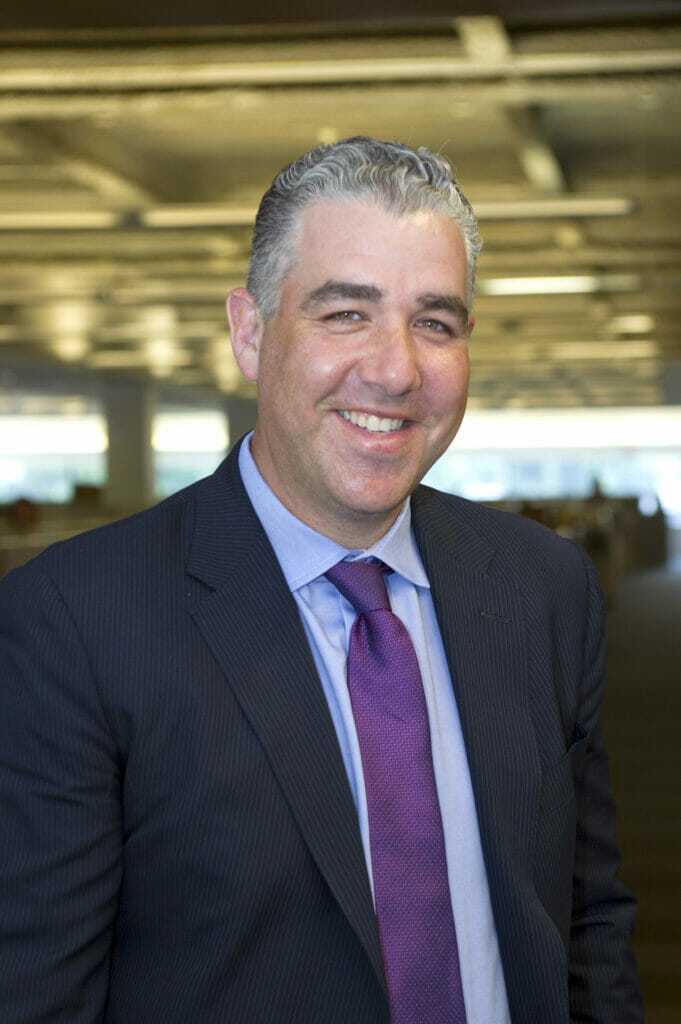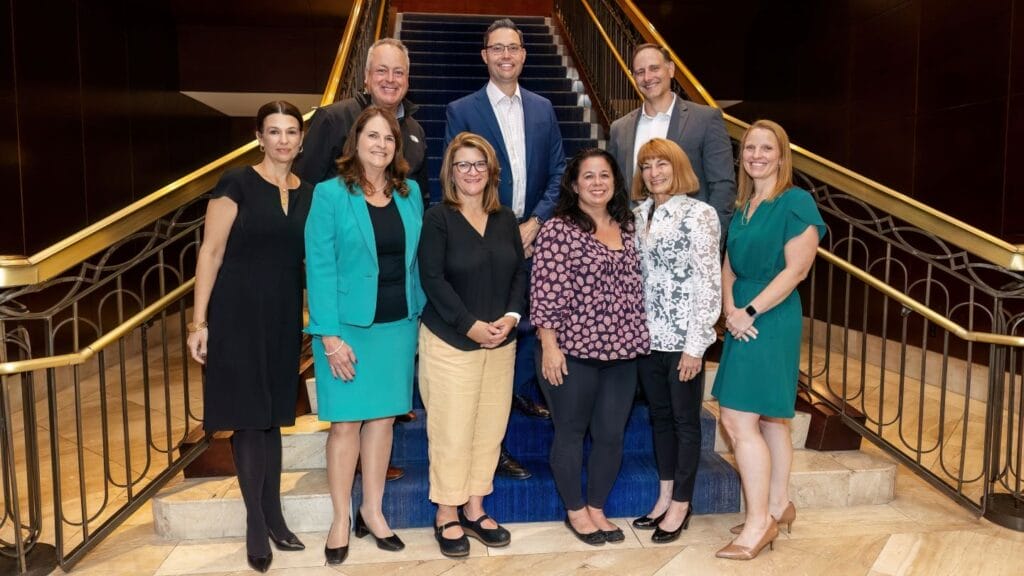For much of its existence, Hebrew SeniorLife has shared a unique connection to Boston’s esteemed academic medical community. But as it looks to recruit staff for its skilled nursing facilities, senior living campuses and other service lines, the organization plans to take its educational mission to the people.
Aging services providers must play a larger role in providing supports within their communities, helping with broad and basic workforce education, even before recruiting potential candidates, Hebrew SeniorLife CEO Steve Landers, MD, told McKnight’s Long-Term Care News last week.
“I still say the workforce issues are the number one challenge, and one of the reasons they’re a big challenge is the demographic that we’re working with in our aging population. It is going to be with us, and it’s going to require incredible creativity,” Landers said. “In terms of where I’m hoping to work with our team in the coming months, it’s being leaders and innovators in workforce development, but contributing to solutions rather than just passively having to watch this situation and be frustrated.”
For Landers, that vision starts with educational programming that starts pre-hire for potential CNA and home health aide candidates, regardless of whether his organization will be the one to hire them. Boston, not so long ago one of America’s whitest cities according to the Census Bureau, had become the sixth most diverse by the late 2010s. That means Landers’ local labor pool is hugely diverse, shaped by immigrant communities and first-generation Americans.

“We need to provide even earlier, more formative educational support that might involve things like language training, basic jobs skills, and tech literacy,” Landers said. “We’re trying to develop some resources to go that far ahead in the process to try and really get people interested in long-term care and support them in their development at an earlier place.
“I think it’s more about, can we make a big, broader impact on the workforce, not just for ourselves, but also make a community impact in terms of the broader continuum,” he added. “It’s a topic I’m really excited about for the future.”
Hebrew SeniorLife serves seniors across six campuses ringing Boston, through its multiple outpatient and home-based service lines and with prolific research produced through its Hinda and Arthur Marcus Institute for Aging Research, focused on geriatrics and gerontology. In addition to housing and skilled care, it also runs two long-term chronic care hospitals with more than 600 beds. All together, it’s New England’s largest nonprofit provider of senior health care and living.
Not just a Boston thing
With about 2,500 employees currently, Hebrew SeniorLife also is facing many of the same recruitment challenges as providers almost everywhere in the country.
Landers says support from Hebrew’s own medical group and access to training from some of the best academic programs in the nation contributes significantly to retention, he wants to do more to expose workers to caregiving roles, expand even more on on-the-job training, and create additional career pathways. That starts with grassroots outreach.
“We all need to find net new workers. Right? We need to find people, and we can compete with one another for whoever’s out there … but that’s a zero-sum game. Ultimately we need new entrants,” he said. “That requires casting a wider net and also [putting] support services around these workers so that they can get training and still address issues like child care and transportation.
“And then we’re talking about people that are new to our communities. Maybe they’re not native English speakers. We need language skills support and work skills in computer literacy training. There’s all sorts of stuff we have to do to create that pipeline.”
Seeking more hospital partnerships
Skilled staffing has been problematic, and the organization’s two facilities each have a census of around 30 right now, despite their 50-bed capacity.
Landers blamed some internal “structural” challenges for those limited admissions — rather than massive staff shortages — but he also acknowledged that the organization is working behind the scenes to address nurse recruitment.
A key partner, Landers believes, will be hospitals.
“We’ve been able to work with the hospitals to try to prioritize and triage, even entertain some dialogue where the hospitals might provide us some support to expand access,” he said. “There’s a very receptive audience to that type of thinking. … I think the question is can we contract, maybe designate some of our bed capacity to a specific hospital or health system, or get some consideration with respect to staffing support. That could be financial support or what have you, but we’d be able to provide more services.”
Such partnerships could be game-changers in Massachusetts, where earlier this year a state health association estimated that roughly 1,200 patients daily are stuck in hospitals, while waiting for discharge to nursing homes or rehabilitation facilities. Meanwhile, 25 nursing homes have closed in the state since 2020, the Massachusetts Senior Care Association has said.
“I’m very optimistic that those types of arrangements are of interest and potentially can play a role in bringing more resources to help get more people out of the hospital,” Landers said.
Creative contracts and referral partnerships could pay off longer-term for the provider. Because Hebrew SeniorLife has such an extensive network of services, it’s likely to offer additional services patients might need in the future.
“There’s a lot of loyalty because the families get to know us and trust us, and we’ve got over 100 years of work in the community,” Landers said. “We’re typically not strangers to the people that we’re caring for. At the same time, it’s a very competitive environment. But some of the services we offer have some overlap with things that the hospitals and health systems offer or that other independent providers offer. We’re always having to try to differentiate ourselves.”
Training grounds
Physicians and advanced practice nurse teams affiliated with Harvard and the Hebrew SeniorLife teaching system are always available to and regularly rounding at the skilled nursing and chronic care hospital locations, noted Landers, a geriatrician himself.
Having all these folks as part of one orchestra rather than a bunch of one-man bands, if you will, seems to be paying dividends in terms of some of the outcome measures, the star ratings, and patient experience measures.
“I think that the two things that I’m seeing coming in new and seeing this approach from the outside is that number one: There’s great collegiality and rhythm with the medical staff and the nursing teams around issues of quality, safety and performance improvement,” he said. “Having all these folks as part of one orchestra rather than a bunch of one-man bands, if you will, seems to be paying dividends in terms of some of the outcome measures, the star ratings, and patient experience measures.
“The second thing that is a win — although it’s more of a community impact than necessarily great business — but the contribution to education, when you have a steady group of geriatric medicine leaders on site that are committed, provides stability and a great venue for learners rather than kind of people coming in and out of the facility,” he added.
“The teaching contribution is very real and that’s helped us with recruitment ultimately, so we’ve been able to keep some of the folks that participated in the training programs.”
On the skilled side, that often means CNAs and nurses work with leaders who’ve helped train them, and they see a path forward, which promotes retention. But Landers continues to come back to the idea of unearthing new talent in ways the sector hasn’t imagined before.
“That’s a very robust and active topic here,” he added. “And of course, when it comes to the CNA training program, we’re trying to cast a wide net and reach people that might not otherwise have known about working in long-term care and elder care.”




